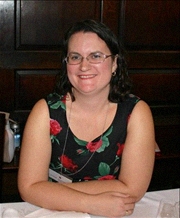Tutor HuntResources Maths Resources
I Can`t Do Maths.
Date : 28/07/2012
Author Information

Uploaded by : Liz
Uploaded on : 28/07/2012
Subject : Maths
Psychologists agree that different people learn in different ways. There is now greater understanding of having right-brained (experiential) or left-brained (rational) tendencies. People with left-brained tendencies usually find logical and deductive subjects, like maths and science, easier than people with right-brained tendencies, who prefer more creative subjects. Similarly, every person has a different learning style (a preferred method of learning from which they learn the most). The most common categorisation model is Neil Fleming`s VARK: 1. Visual Learners 2. Auditory Learners 3. Reading/Writing Preference Learners 4. Kinesthetic Learners.
Maths teaching tends to be taught by reading an example (whether on paper or the teacher writes on the board), reading a question in a text book and writing the answer. As we have seen, pupils learn in different ways so this may not be best for the pupil who is struggling. Schools are great institutions for teaching the masses, however teachers do not always have the time or resources to tailor lessons to each child. The best that can be done is to teach in a way to maximise the number of students who do grasp the subject - take the middle ground. As such, pupils who may be struggling with basic maths concepts find it harder and harder to catch up with the rest of the class and can feel disillusioned and disheartened. Similarly, though maybe counter-intuitively, students who have an aptitude to maths find lessons too easy and can become bored. They lose passion for a subject they once loved and enjoyed, and in some cases they can even become disruptive during lessons.
Fortunately, tutoring can help both these cases. By planning lessons to suit the individual needs of the pupil and allowing the student to set their own pace, confidence soon grows and small steps soon become strides. I do truly believe that, with the right help, everybody can do maths. It takes patience and effort from both the tutor and the student, but together confidence with numeracy can be achieved.
Bibliography Tony Attwood, The Dyscalculia Centre wrote in P34-35 Issue 41, July/August 2009 of SEN Magazine. Neil Fleming, VARK - A guide to learning styles. www.vark-learn.com
This resource was uploaded by: Liz
